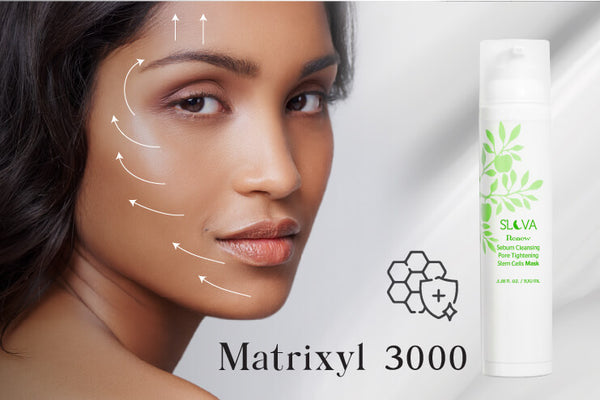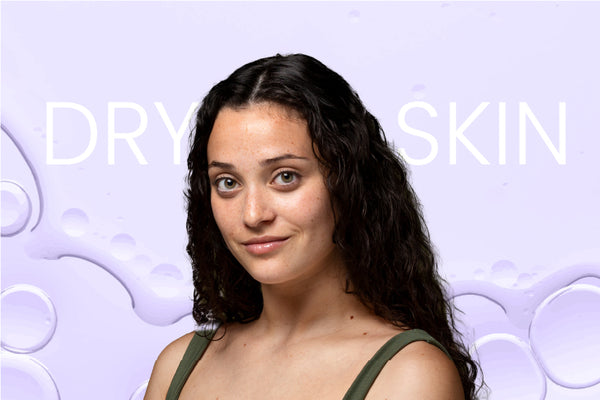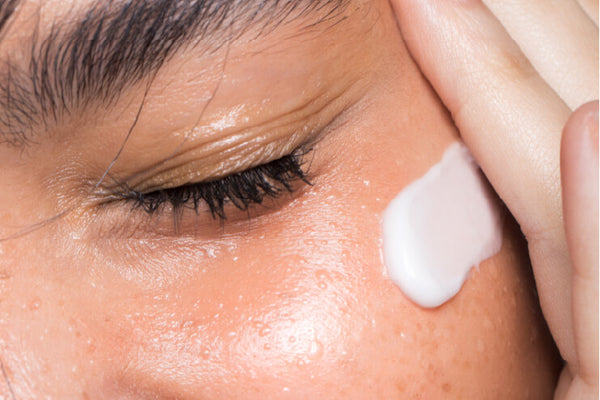Note: "Add 2 products to avail Buy 1 Get 1.
Not Applicable on Combo products."
How To Choose The Best Moisturizer For Your Skin Type

Moisturizers are one of the basic steps in any skincare routine. They act as a protective barrier for your skin and keep it hydrated, soft, and healthy. While there is confusion around this, it is recommended that a moisturizer should be used daily.
Buying a moisturizer seems easy, but when you wander around the skincare aisles you see so many options: face creams, lotions, body, and facial moisturizers. There can be options of ointments for dry, sensitive, oily, or pigmented skin. Confusion grows more when they add in sunscreens and anti-aging ingredients.
Most of us use a moisturizer, but how do you determine which one to choose?
Before buying any skincare products you must know your skin type. Every skin is different and there are a variety of products that cater to the needs of different skin types specifically.
What kind of moisturizer should you use based on your skin type?
Dry skin: Use a heavier and oil-based moisturizer
Oily skin: Use lighter and water-based moisturizers
Mature skin: Use oil-based moisturizers to preserve moisture
Sensitive skin: Use a moisturizer with soothing ingredients, like aloe vera, that won’t be harsh on the skin
Normal/Combination skin: Use a lighter and water-based moisturizer
Important things to consider before buying a moisturizer:
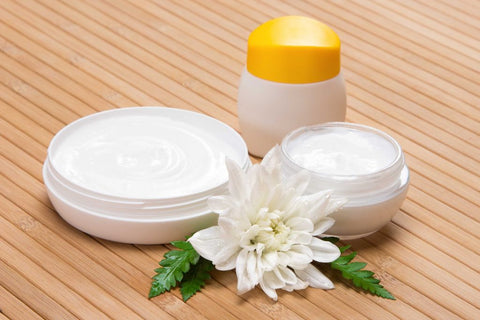
Fragrance-free: Look for those moisturizers that don't have any fragrance. To cover up the unpleasant chemical odors, many skincare and cosmetic products include additional fragrances. Many fragrances are synthetic and may contain toxins and can contribute to skin reactions and allergies.
Paraben-free: Parabens are a kind of preservatives that give beauty products a longer shelf life. You must have seen "methylparaben, propylparaben, and butylparaben" on the labels of many cosmetics or skin care products. According to The Cosmetic Ingredient Review (CIR): These parabens are “safe for use in cosmetic products at levels up to 25 percent”. Parabens have so many health risks. Since they mimic estrogen they can increase the risk of cancer. Try to buy paraben-free products always.
Hypoallergenic: Hypoallergenic in the beauty industry refers to a product causing fewer allergic reactions in consumers. If you have a sensitive skin type, then look for those moisturizers with hypoallergenic in their label.
Non-comedogenic: Non-comedogenic means that the product is oil-free and non-clogging. It means that the product will surely break down excess oil but won't strip your skin of moisture.
Natural or organic: Since the rise of the clean beauty movement, more and more people are becoming considerate about the ingredients in their beauty products. Natural products use ingredients that come from botanical sources. They may or may not use chemicals. While on the other hand, organic products mean that the ingredients are grown without chemicals, pesticides, or artificial fertilizers. Try to opt for "Clean beauty" products.
Broad-spectrum: Broad-spectrum products are those that block both UVA and UVB rays of the sun. While many moisturizers don't contain sunscreen in them, some moisturizers are a blend of the two: both moisturizer and SPF. If your moisturizer doesn't come with SPF in them, you can apply the moisturizer first and then follow it up with a broad spectrum SPF.
Some basic rules before you invest in a moisturizer:
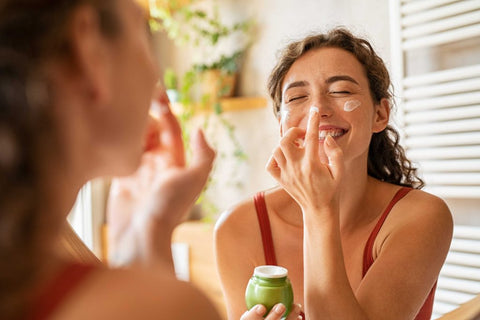
- Always choose your moisturizer based on your skin type. Thick cream will suit dry or dehydrated skin, a light-textured lotion will suit oily and combination skin.
- Other than texture, other considerations that should be taken into account: SPF protection in your morning cream and anti-aging benefits in your evening/night cream
- Change your moisturizer according to the season. For example, try a light one for the humid weather in summer and a more hydrating one for the dry weather in winter.
- Remember, the moisturizer that was right for you in your 20s, probably won't work for you in your 40s. As we age, our skin changes gradually, so changes in skincare products are also necessary. As we get older, our skin's natural sebum production is reduced, which means the skin will get dryer. Thus, a hydrating moisturizer is needed.
- Always apply your moisturizer in the upward direction, against gravity.
- The rule of product layering is from thin to thick. So, apply your moisturizer over your serums and under your makeup.
Summing Up
Moisturizer is a must! After cleansing, it is the immediate second step of any skincare routine. Buying and applying the correct moisturizer will save you from so many skin issues.
